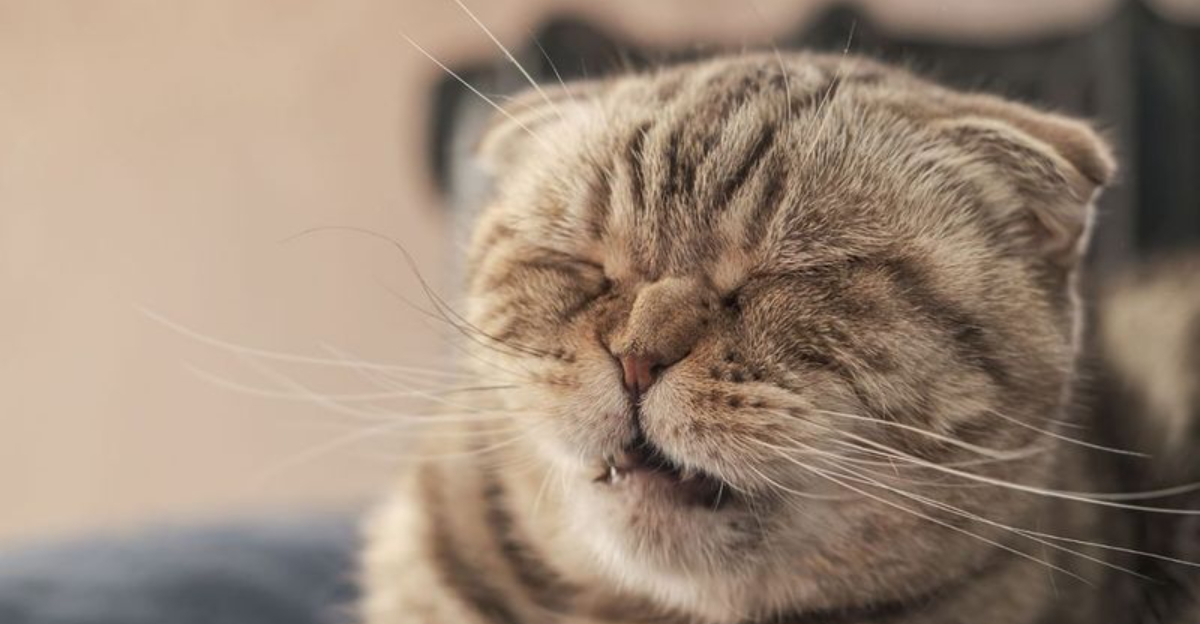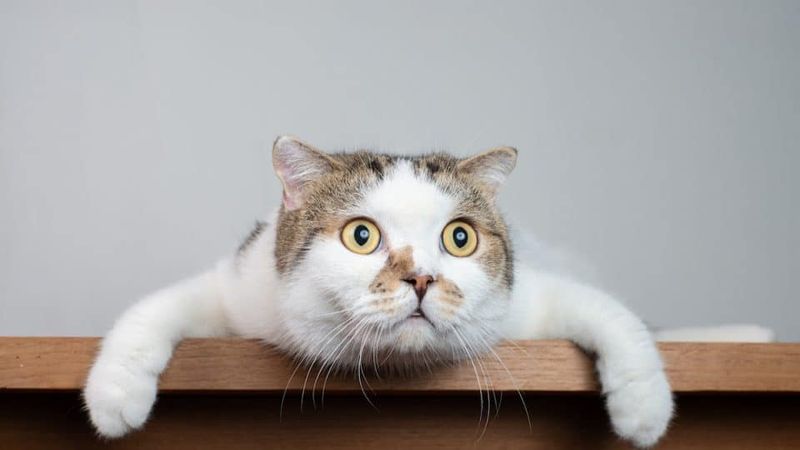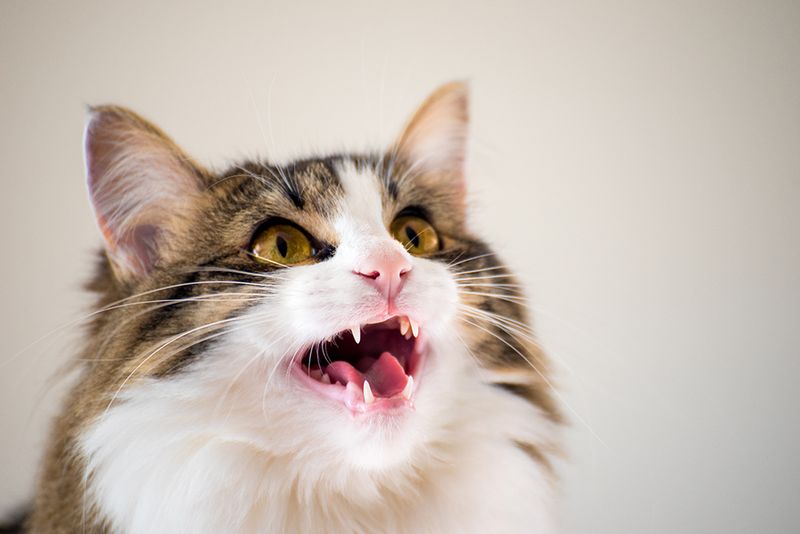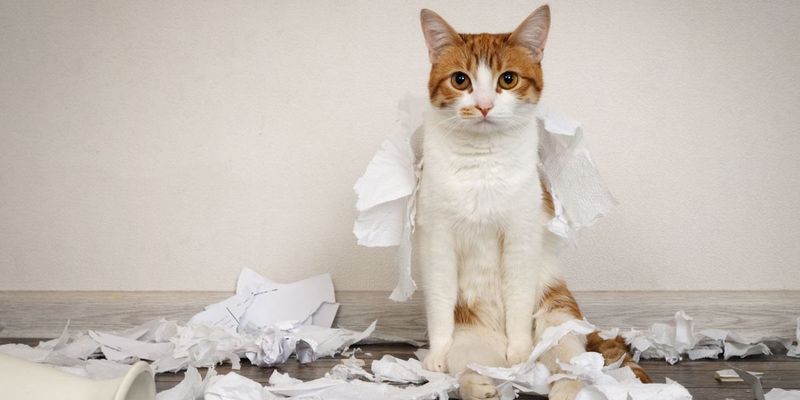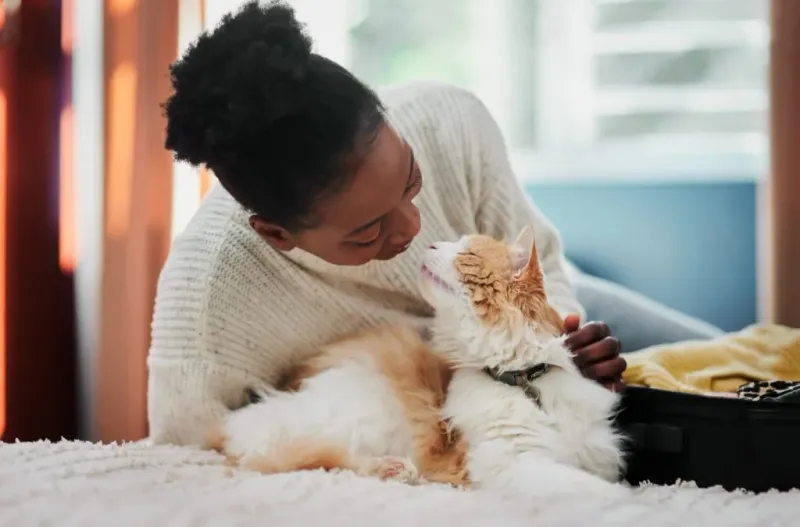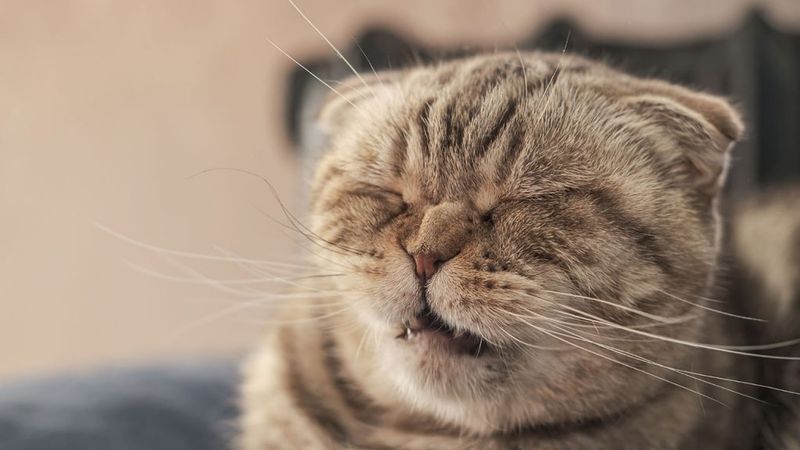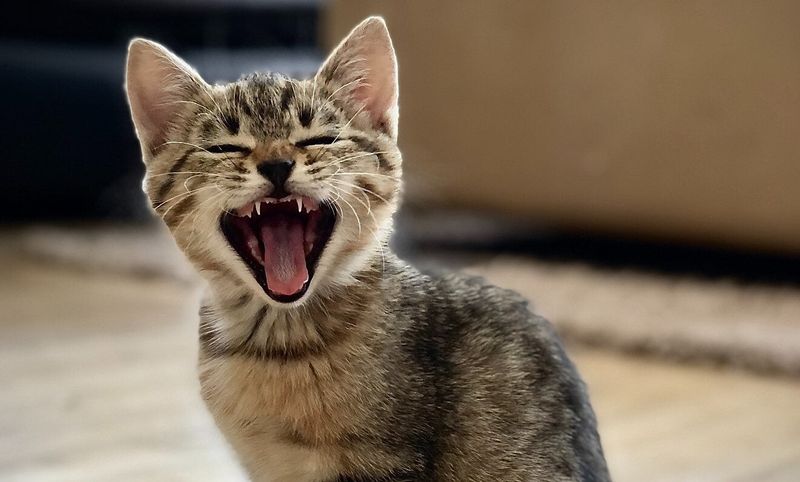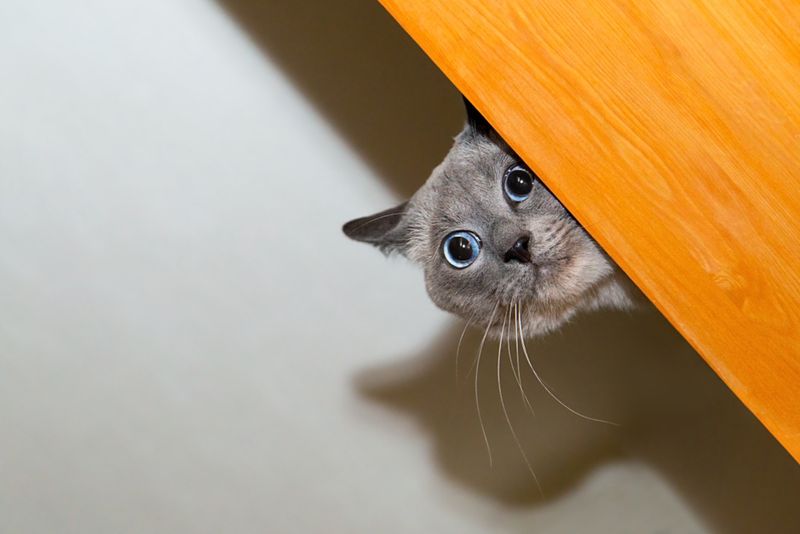📖 Table of Content:
Sneezing is one of the most mundane things humans do. But if you have a cat, you may have noticed that something strange tends to happen whenever you let out a sudden “achoo.” Instead of ignoring it, your feline friend might meow, look startled, or even come running. While it’s easy to brush this off as a coincidence, there might be more behind that adorable reaction.
Cats are creatures of habit, hyper-aware of their surroundings, and in tune with the smallest shifts in your behavior. A sneeze—loud, involuntary, and unexpected—can break the quiet routine they thrive on. But the reaction isn’t always one of fear; in fact, many cats seem intrigued, concerned, or even slightly annoyed, each response tied to their individual quirks and learned experiences.
So, what’s really going on when your cat meows at your sneeze? Let’s explore 7 surprising (and totally cat-like) reasons your furry companion might react the way they do. From evolutionary instincts to emotional intelligence, their response may be more thoughtful than you think.
1. Startled by the Sound
To a cat, a sneeze is like a thunderclap out of nowhere. Their acute hearing is tuned to detect the softest rustle of prey, so a sudden, sharp human noise can easily startle them. This reaction may come out as a loud meow, a quick dart under the couch, or even just a wide-eyed stare. Even if you’ve sneezed around them a hundred times, the abruptness never fails to catch their attention. Some cats might even interpret it as a potential threat to their environment. Their vocal response could be a way of saying, “What was that?!”—or simply releasing their own nervous energy. Over time, you might even notice a specific pattern in how they react depending on how loud your sneeze is.
2. Mimicking Communication
Believe it or not, cats often see us as giant, somewhat clumsy cats—so they try to “talk” back using their own language. When you sneeze, your cat might interpret the noise as a form of communication, leading them to respond in kind with a meow. This can be especially common in cats that are very vocal or bonded closely to their human. Just as they chirp at birds or meow at toys, a sneeze might be one more sound they want to reply to. It may not be meaningful speech, but it’s interaction nonetheless. The exchange could be your cat’s version of a conversation—albeit a strange one. You sneeze, they meow, and the ritual continues.
3. Seeking Attention
Let’s face it—cats know when you’re paying attention to them. If sneezing tends to break up your focus (maybe you stop scrolling or look around), your cat might seize that as their golden moment. They could meow to draw your gaze, jump onto your lap, or circle near your feet hoping for affection or play. This type of reaction can become a learned behavior if they’ve ever been rewarded with cuddles or treats right after you sneeze. Think of it as feline opportunism: they notice a window and take it. Over time, your sneeze could become their cue that it’s time to connect. A meow here is less about the sound itself and more about what comes next.
4. Concern or Curiosity
Occasionally, your cat’s reaction may come from a place of empathy—or at least feline curiosity. When you sneeze, especially if it’s loud or repeated, your cat might meow as if to say, “Are you okay?” Though cats aren’t known for their nurturing instincts the way dogs are, many are surprisingly attentive to changes in your emotional or physical state. They might approach you, stare, or vocalize, all signs that they’ve noticed something is “off.” Cats build quiet routines around their humans, and anything that breaks that pattern, like a sneeze fit, triggers concern. So that seemingly random meow might actually be a gentle check-in. It’s their way of acknowledging that something has changed—even briefly.
5. Learned Association
Sneezing might not seem like a big deal to you, but to your cat, it might have become a predictable event with a predictable outcome. If sneezing happens during a certain part of your daily routine—say, while you’re cooking or watching TV—your cat may have built an association between the sneeze and another activity they enjoy. Perhaps they get treats when you’re in the kitchen, or they get petted when you’re sitting down. Over time, the sneeze becomes part of a sequence, and your cat starts reacting not just to the sound, but to what they think is coming next. A meow, in this case, is almost anticipatory: “Ah, it’s that time again.”
6. Territorial Response
Sometimes, your cat’s meow after a sneeze may be more about them than about you. Cats can be sensitive to sudden noises that feel like an invasion of their space—especially if they’re napping nearby or grooming themselves. Your sneeze might trigger a defensive vocalization, particularly in more territorial or easily startled cats. This doesn’t necessarily mean aggression; it’s more about setting boundaries. It’s their subtle (or not-so-subtle) way of saying, “Keep it down, this is my domain.” Think of it as a polite protest from a housemate who wasn’t expecting a disruption.
7. You Interrupted Their Zen
Finally, never underestimate a cat’s dedication to calm and quiet. Cats spend a significant portion of their day in restful states, whether they’re lounging in sunbeams or curled up in a warm corner. A sneeze, even a small one, can abruptly pull them out of their blissful stillness. Their reaction might be a meow of protest, annoyance, or mild confusion. It’s not unlike being woken up by a door slamming—rude, jarring, and definitely worth a complaint. In that moment, your cat might simply be saying, “Excuse me, I was meditating.”
